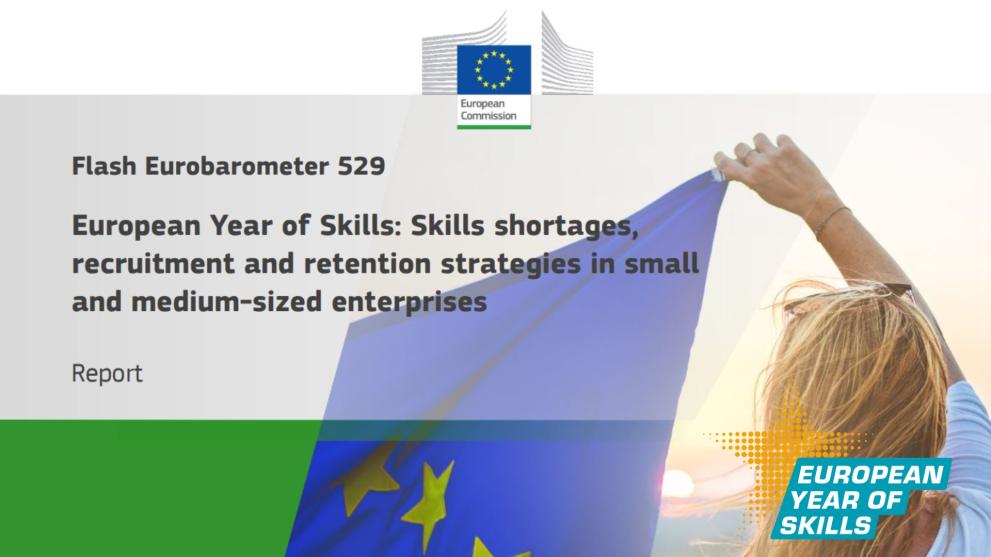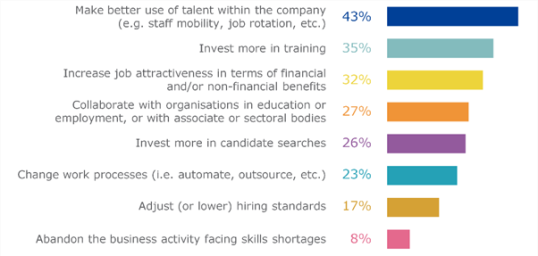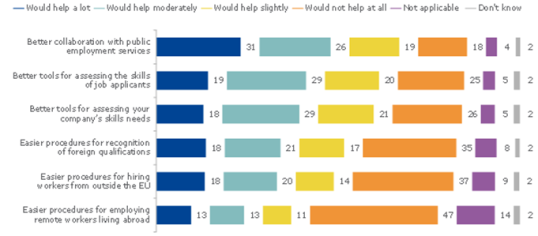
We recently held a Eurobarometer survey asking representatives of over 12,000 small and medium sized companies across Europe their views on skills and the workforce. The key results show that 78% of SMEs find it difficult to recruit workers with the right skills. For almost two-thirds of surveyed companies, skills shortages tend to hold them back in their business activities. While for 8 out of 100 SMEs this leads to abandoning part of their activities, most enterprises are pro-actively employing multiple measures to tackle skills-related challenges.
The survey reveals that, when faced with skills shortages, SMEs focus on tapping into the potential of their existing workforce. More specifically, the most frequently chosen responses involved making better use of existing talent within the company (in the top 3 measures for 43% of surveyed SMEs) and investing more in staff training (for 35%). Skills shortages also led to many SMEs taking specific measures to attract better candidates (by offering higher salaries or non-financial benefits to future employees – 32% and in candidate search – 26%). Only 17% say they lower hiring standards in response to acute skills shortages.
Although more than a quarter of SMEs already reach out for help to organisations in education or employment or sectoral bodies (27%), many respondents see the need for further collaboration. More than half of surveyed companies indicate that a better collaboration with public employment services would help them address skills shortages (57%, including 31% for whom it would help ‘a lot’). Apart from this, many SMEs underline the need for practical skills-related tools - both to review the applications (48%) as well as to assess company’s skills needs (47%).
EU policies helping SMEs to find workers with the right skills
How is the EU helping SMEs to address skills shortages? In the framework of the European Skills Agenda – an over-arching EU strategy for developing more and better skills across Europe – the European Commission has been supporting companies in their response to skills shortages. Examples of actions that can help SMEs grow their staff and attract new employees with the skills they need include the Pact for Skills, among others. The Pact aims to mobilise and incentivise private and public stakeholders to take concrete action for the upskilling and reskilling of people of working age. Partnerships in key industrial or regional ecosystems are established to identify skills needs and targeted solutions are developed to cater for actual skills needs on the ground.
To learn more about actions of other Commission services aimed at supporting skills development and discover other Eurobarometer’s findings, check out the first article in this series “SMEs in Europe struggle to find workers with the right skills”.
Details
- Publication date
- 27 November 2023
- Author
- Directorate-General for Employment, Social Affairs and Inclusion


